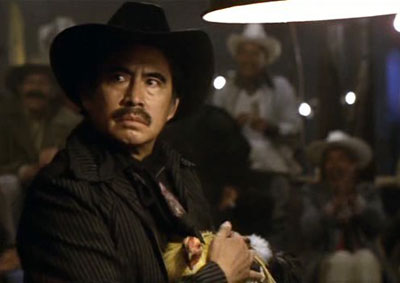Download a sample list of available titles and additional research resources at UCLA in PDF format.
Two of the strongest directors to emerge from Mexico in the 1960s were Arturo Ripstein and Jaime Humberto Hermosillo. Breaking away from an earlier cinematic tradition which emphasized folklore and fantasy, Ripstein and Hermosillo focus instead on social reality—condemning intolerance, convention and the sexual tyranny of "machismo." The films in this collection were screened as part of the UCLA Film & Television Archive's series "The Films of Arturo Ripstein and Jaime Humberto Hermosillo" organized in collaboration with the Instituto Mexicano de Cinematografia (IMCINE) and the Cineteca Nacional de Mexico.
Hermosillo often uses the language of melodrama to dissect the values of the modern Mexican middle class and is one of the first Mexican filmmakers to deal sympathetically with the issues of homosexuality and gender difference. Hermosillo's film Donna Herlinda and Her Son accepts the love between two gay men as normal. The Passion According to Berenice examines a woman's rebellion. Mary My Dearest, written in collaboration with Gabriel Garcia Marquez, is a story of love, fate and magic.
Ripstein, the son of a film producer, began his career in film as a teenager when he worked as Luis Buñuel's assistant during the filming of The Exterminating Angel. He has collaborated with some of Latin America's most important writers, including Carlos Fuentes and Jose Donoso. Often set in small towns, Ripstein's films puncture macho posturing and examine oppressive social conditions and traditions. The Realm of Fortune, Ripstein's most acclaimed film, allied to the literary style of magic realism, a Latin American movement whose most well-known practitioner is Gabriel Garcia Marquez. With an uncredited Manuel Puig, Ripstein wrote and directed The Place Without Limits, which examines homophobia in a macho society.
To arrange onsite research viewing access, please contact the Archive Research and Study Center (ARSC).







